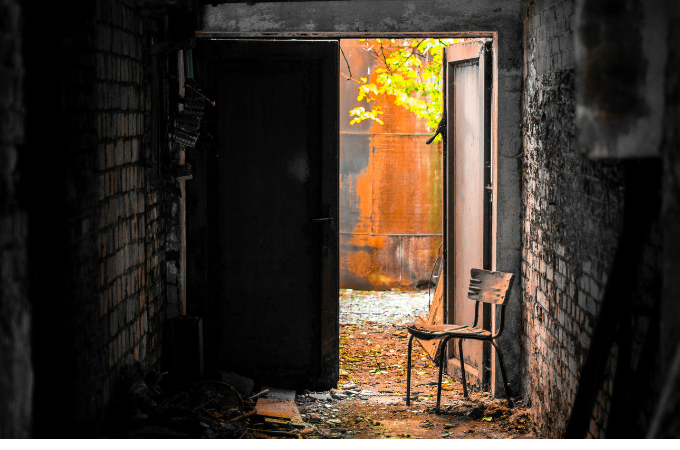
i.
It is Saturday morning. I am seated beside my aunt who is curled up in her favourite position on the worn-out chair on our balcony. She’s reading through Damilare KuKu’s Nearly All the Men in Lagos Are Mad, the only book I have recommended that she could read cover to cover. My grandfather, with his daily newspaper and thick glasses perched perfectly on the bridge of his nose, would soon come to call me inside because the rails were getting weak.
“Omoalukhe!” he would carefully call out in routine, currying and employing the basic tricks behind the pronunciation of my name as if to remind me yet again that I am just an extension of my mother. “You’ve to be inside, you know how Ladi is.” And I’d respond with a mumbled agreement, just loud enough for him to hear, but also not enough to answer that I understand my aunt wears her rebellion just beneath her belly button like a swaddle of real-time-Benin-wahala.
The thing is that my grandfather courts his fears aggressively, and he does so unfailingly with style when it comes to me. What my grandmother would describe it as is the only kind of thing you can only do with close relatives, and the few remaining people he is cordial with. That is about nine and a half people in all of his existence. Her story never ends there, “He is such a devoted father, you remember the time we had that trouble, and your aunt came back to us, with her feet looking like a prisoner’s, all blackened and cracked and scarred and dirt an inch thick around every toenail? He washed her feet with his own hands, scrubbing and scrubbing and scrubbing them with hot water and salt and soap and an old toothbrush and applying cream and baby oil to clean and soften them.”
I wish my grandmother would not tell this story. The original context of my aunt’s bad marriage, as a fable of my grandfather’s unending, unconditional, over-conditioned love.
ii.
Naturally, I understand why no one would understand why I am reluctant to have my grandmother’s story become the Standard, Authorized, Good News Version. Much as I love her, her stories bite on the same thing over and over again just as Jonah was three days, three nights in the belly of the fish.
And in an extremely unlikely event that this constant, direct reference has not bred sufficient interest for me, she would move on briskly and disapprovingly to talk about how there are so many things that I cannot become. It is a sort of declaration that demands drama. But I think of leaving. Leaving with my warm cheek against the cold window, sleeping through a hard rainfall. When I am old enough to be aware of leaving.
iii.
Over the weeks, I have emerged as some kind of faith-healer for my grandfather, largely because he thinks he can manage to preserve me into a more pristine form like a halo sculpted around the innocent years of Jesus within the womb.
The only expectation I must consider is my role as a daughter, and not as a granddaughter. The most important, of course, as a replacement, who can pass for his dead daughter. I begin by wearing my mother’s favourite blouse to church, tamed and precisely put back without disobedience. I skip the suddenness in the way I address the members of the Catholic Women Organization after mass, because I have been attired into this manner. I wear a polite smile when the catechist asks about me missing Catechism, because I am especially eager to impress and escape punishment. Or, I effect accurately into someone whom no one even sees.
iv.
I like to think that this is not the real object of his desire. That I could exist just as someone that could be loved, and not as a booth to retrieve his daughter. My mother used to reassure me that when I was a baby, my grandfather would watch her powder me. He would continue by making the sign of the cross to keep away the evil eye. I think I would not have suffered as much from the anticipated evil eye as I did with shouldering the silence that possessed my existence growing up.
v.
The Etsako word for beloved is eniye. Every evening, I would look out for my grandfather at the threshold of our house, waiting for me like my mother did. His right shoulder against the door frame. The gaze into the distance. The restlessness captured in his left foot tracing circles on the floor. On an impulse, he would decide to step forward and walk out of our house and wait for me on the street.
vi.
There is an element of nervous excitement about this that renders my becoming. He hesitates. He is still. He moves again, afraid to be spotted on the street, he retraces his steps hurriedly and waits for me by the doors. He takes the same position as before. Leaning on the frame. Staring into the distance. When he spots my petite figure against the horizon, I run obediently to him.
I stretch up on my tiptoes to hug him, so we can walk back together, shutting the door behind us. But then, we remember.
vii.
I used to think that time was a gradual falling of a moment of despair. But then it didn’t respect my lack of light from fading fast-dying stars. It’s not just my suffering that I have to reconsider. I am responsible for the flattened film my life has become. I think of camera angles. I think of how I should preserve the intricacies of the set, and for a split second, I think of taking a matchstick and burning my own skin. My aim is to make me suffer, but I do not want to suffer two-fold by inflicting ignorance on myself. Another match stick is lit and left to burn. And another and another. I have stopped counting. I am addicted. I am addicted. And in an act of mercy, I allow myself three hours a week, rationed, it comes to a very brief half an hour a day.
viii.
A grief researcher, M. Katherine Shear, about whom I have no reliable gossip except that they defined complicated grief as “a form of persistent, pervasive grief” that does not get better naturally. Their conjecture: some of the natural thoughts, feelings, or behaviours that occur during acute grief gain a foothold and interfere with the ability to accept the reality of the loss.
[Insert name of a chronic condition]: The cure is not even in medicine. It is in the state of mind. You have to stop worrying. Every day after that is a day of progress. Worry just kills you from the inside. I’ve seen that in my mother’s case. It decimates you slowly if you don’t embrace it wholly.
Grief is a process that involves growing around the grief. This domesticity binds me together. In the more rustic world of my ancestors, this is the ceremonial bathing and garlanding of grief after the loss of a mother, a token display of affection before every step of the way.
ix.
Like a lot of writers, I think what I know in a language allows the depth of my suffering. I can survive in relation to that language. Not an instance of language shaping my worldview, but its keenness, where my suffering shapes what parts of the language I pick up. Language making me and unbodying me.
Photo by Denny Müller on Unsplash



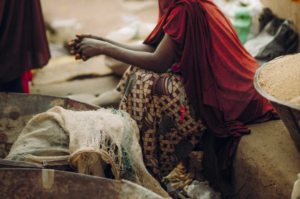
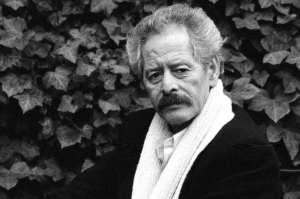
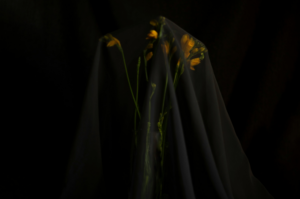

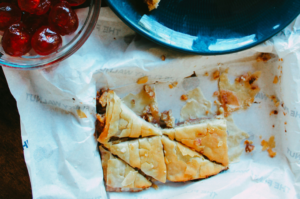
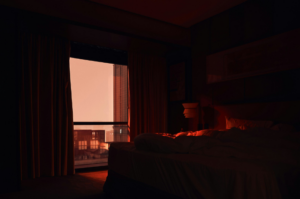

Winner January 31, 2024 13:55
This is an interesting read that captures the complexity of emotions.. Grief and worry are feelings that run deep into the deepest parts of our hearts. But growing, daily despite these feelings makes things better. An insightful read indeed.